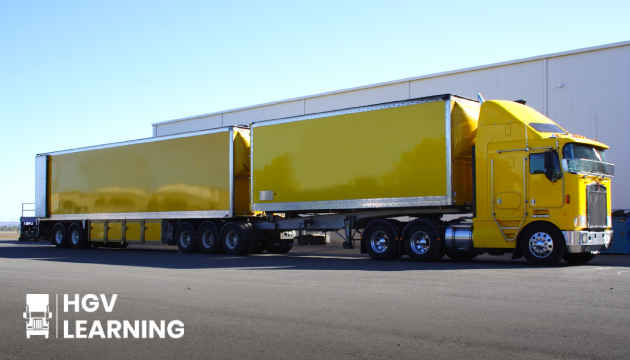Related Articles

09/02/2026
How to Find Lorry Driver Jobs Near Me: A Practical UK Guide


Choosing the right HGV licence type is essential for a successful career in transport and logistics. With several HGV licence types available in the UK, each permitting you to drive different vehicle categories, it is important to understand which qualification matches your goals. This guide breaks down the main HGV licence types, what vehicles they cover, and how each impacts your job opportunities and earning potential.
In the UK, HGV licences fall under specific categories defined by weight and vehicle type. Whether you want to drive a small delivery lorry or operate an articulated lorry, knowing these categories helps plan your training effectively.
The Category C licence, known as Class 2, allows you to drive rigid lorries over 3.5 tonnes with a trailer up to 750 kg. This is the most common entry point for new HGV drivers. Rigid lorries include refuse trucks, construction supply vehicles, and large delivery lorries. Many drivers choose this as their first qualification due to the variety of roles available.
Explore our Category C Training Courses
The Category C+E licence, referred to as Class 1, allows you to drive articulated lorries or trucks with detachable trailers over 750 kg. These are the largest vehicles on UK roads, often used for long-haul deliveries and major logistics contracts. Holding a Class 1 licence significantly expands your career opportunities and earning potential.
View our Class 1 Licence Training Options
The Category C1 licence allows you to drive vehicles between 3.5 and 7.5 tonnes with a trailer up to 750 kg. Many paramedics, delivery drivers, and small removal services require this licence. It is a common stepping stone for those planning to progress into larger HGV roles later in their career.
Learn about our C1 Licence Training Programmes
If you hold a Category C1 licence, you can upgrade to C1+E, which permits towing trailers over 750 kg with your C1 vehicle, provided the combined weight does not exceed 12 tonnes. This is often required for specialised delivery operations or trades that use trailer-based equipment.
When deciding between Class 1 (C+E) and Class 2 (C) licences, think about your preferred driving work. Class 2 suits local or regional routes with frequent stops, while Class 1 is ideal if you prefer long-haul motorway driving and potentially higher earnings. Many drivers start with Class 2 to gain experience before upgrading to Class 1 for maximum flexibility.
Upgrading your licence broadens your job prospects. Employers value drivers who hold multiple HGV licence types, as they can cover various routes and vehicle requirements. Training for Class 1 after gaining Class 2 experience is often faster, as you are already familiar with heavy vehicle operation.
Your choice of HGV licence type should align with your career goals. If you aim for national or international haulage, Class 1 is essential. For urban deliveries or refuse collection, Class 2 may be sufficient. Consulting with a training advisor helps ensure you select the most cost-effective and relevant qualification for your ambitions.
At HGV Learning, we offer comprehensive training solutions for all HGV licence types. Whether you need an entry-level C1 licence or want to upgrade to Class 1, our team guides you through the medicals, theory tests, and practical training to achieve your goals efficiently.
We also provide support with your Driver CPC certification, job readiness training, and career advice to help you maximise your earning potential in the logistics sector.
Explore our full range of HGV training courses to start your journey today.
Understanding the different HGV licence types is crucial for planning your training and achieving long-term success in the transport industry. By choosing the right licence for your goals and upgrading strategically, you will open the door to a wide range of career opportunities in the UK and beyond.

09/02/2026

Complete the form below and we’ll contact you asap.

